Choose the Best Tankless Water Heater for Your RV
Are you trying to decide if a tankless hot water heater for your RV is right for you? I wrote this article to help you make an informed decision. So keep reading for tips on the essential factors to consider when shopping for the best tankless water heater, an overview of the price range to expect, and tankless model that I decided was right for my rig.
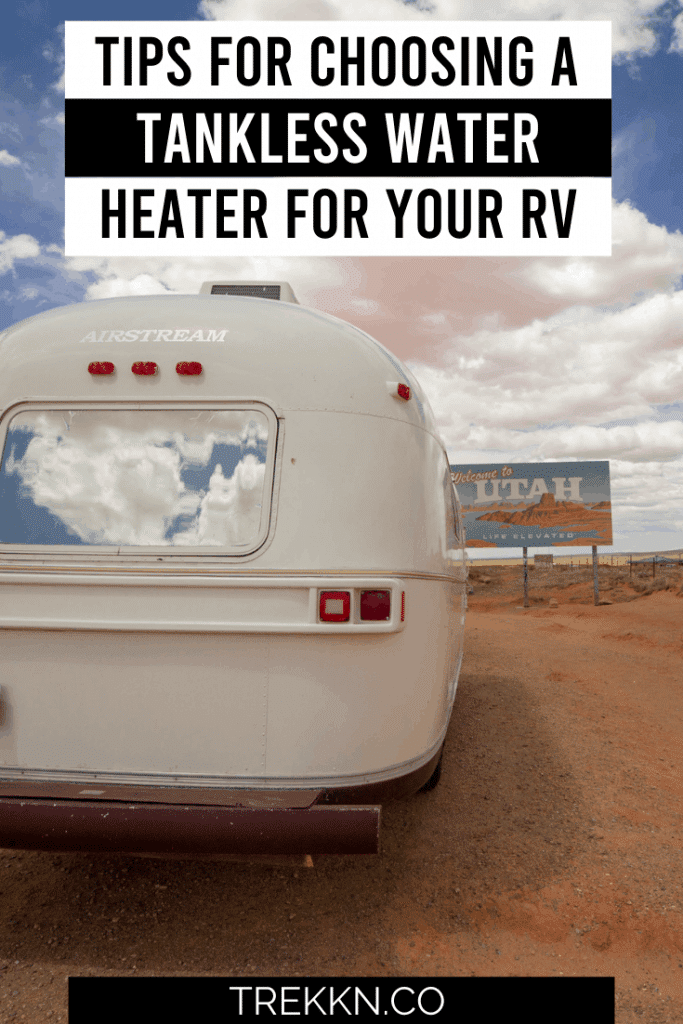
After winterizing my travel trailer a few months ago, I didn’t know if my RV’s traditional tank water heater was going to last through the winter. It was one of the few original fixtures we decided to keep during the remodel and renovation process we completed on that rig.
While it lasted for well over a year, we do realize in hindsight that keeping that old water heater was not exactly the smartest decision.
Winterization Shouldn’t Be This Hard
Now that we’ve moved back to Arizona from South Dakota and the old water heater decided to thaw out (despite my endless efforts to empty it before Winter), I’ve been on the prowl for a new hot water tank, preferably one that delivers bragging rights about its energy efficiency.
Tankless hot water heaters are all the rage in the tiny living community. Despite the upfront costs, there are multiple benefits of installing a tankless system. One clear benefit is gaining back some of that cabinet space that the current water heater was using in the RV kitchen.
Today I share with you how I decided which water heater to purchase for my trailer. I the tips and insights help you think through the process before diving into the first unit you see online. (And also prevent you from having a leaky water heater next winter!)
While we all may love RVing, we have different travel goals, budgets, and layouts inside our rigs. So take some time to review this list of the best RV tankless water heaters and find the one that’s right for your situation.
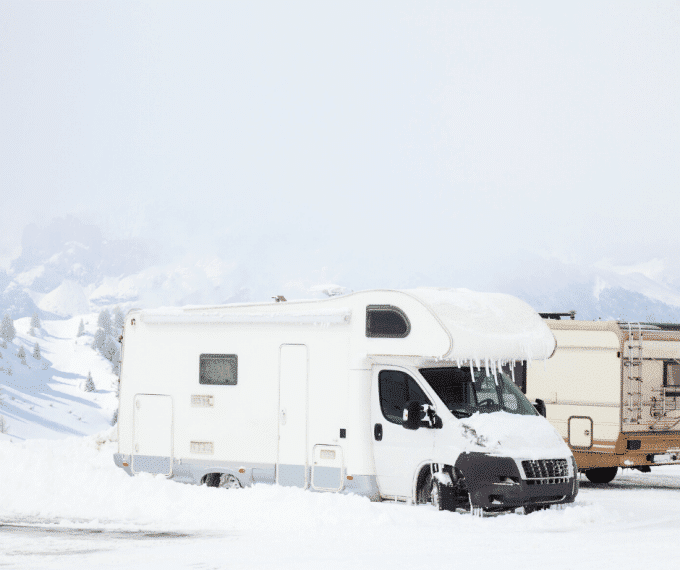
What to Know When Choosing a Tankless Water Heater
There are a handful of things to take into consideration before deciding on a tankless water heater for your RV. Let’s review the essential factors to consider to help you decide what size you need and if it’s a good fit within a very limited space.
Number of Sinks, Showers, Tubs, and Toilets
The size of your new tankless water heater is highly dependent on how many areas in your rig have water lines and use water regularly. For us, we only have a kitchen sink and a bathtub area that rarely uses water unless we’re hooked up somewhere.
Other RV owners may have a higher daily water flow with multiple sinks, a shower, and a toilet or two.
Consider both the cold water and hot water supply that is used in these areas to determine what size tankless water heater you may need. The goal is not necessarily an endless hot water supply, but rather to ensure you get adequate volume and water flow from the new tank.
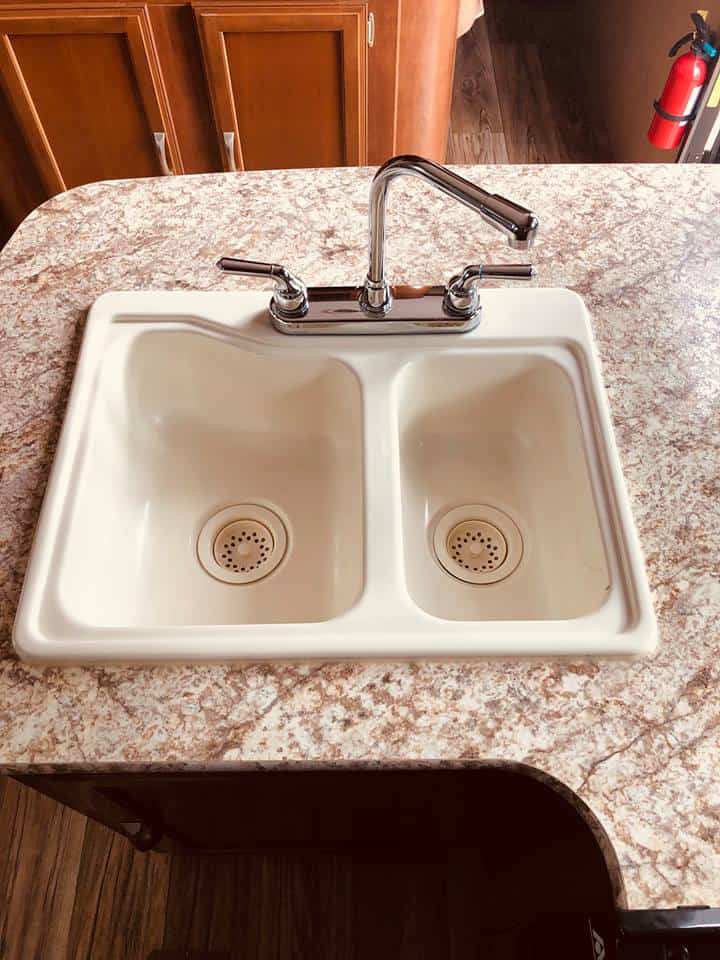
How to Determine Maximum Flow Rate
You can easily determine the maximum flow rate, as it’s known in the tankless water heater community. Simply add the gallons-of-water-per-minute flow rate of all fixtures.
Said differently, take a look within each water-use area (bathroom shower, kitchen sink, etc.) and write down the water flow of each fixture. Then, add all of those flow rates together and the sum is the maximum flow rate.
Example of How to Calculate Maximum Flow Rate
For example, if my kitchen faucet has a 1.0-gallon per minute flow rate and my shower head has a flow rate of 3.0 gallons per minute, the total flow rate would be 4.0 gallons of water per minute.
If you don’t know the flow rate of your fixtures, check online for any information on the specific faucet or other product installed in your rig. Try the manufacturer’s website as they typically publish owner’s manuals that should have the data you need.
What to Do if Maximum Flow Rate is High
If the flow rates are high, you may want to consider installing low-flow water fixtures or adapters to your current setup to reduce your total water needs. This will potentially allow you to purchase a smaller water heater. Ultimately, that may reduce overall water usage, including the number of gallons of hot water used, which in turn could cut energy costs.
Water Temperature
Although a tankless unit will provide instant hot water, not all systems are made to pump out hot water at a consistently high temperature.
Most of us RVers live in a warmer climate, or at least follow the sun while we live on the road. So generally we don’t require a hot water tank for the RV that operates at an insanely high temperature to keep the water warm. However, if you plan to live in your rig during heavy or even mild winters, you will want to up the ante on a tankless water heater.
For reference, you should at any given time hope that your water comes out between 105-115 degrees when you’re dreaming about taking hot showers after a long day hike. Keep this in mind when you look at the temperature control range of each water heater.
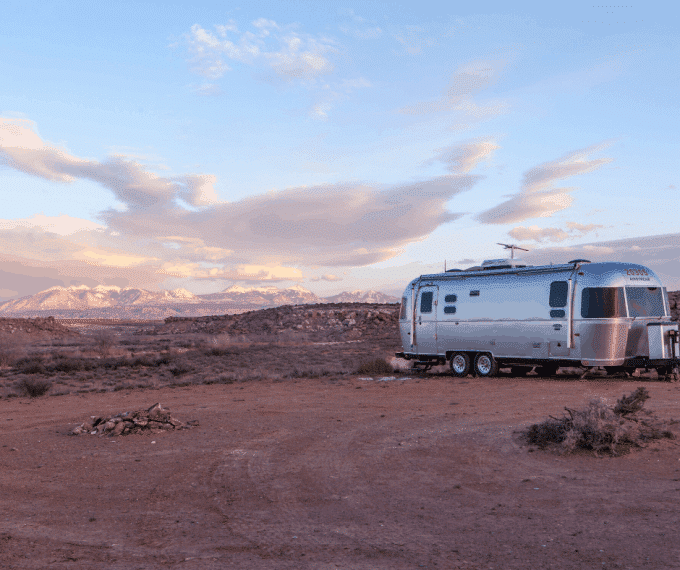
Gas or Electric Power
Depending on how your rig is set up, you may want to consider a propane gas-powered system over an electric tankless water heater. Gas tankless water heaters are not only great for boondocking, but they also heat water more quickly. If you’re off the grid enough, a gas tankless water heater is probably better, but if you’re always hooked up to shore power somewhere an electric one should work well, too.
Top Choices for RV Tankless Water Heaters
After seemingly endless hours of research, I created a short list of the best options for a tankless water heater based on the capacity and capability of my existing water pump. I also took into account the key considerations I discussed above.
High-End Options
TRUMA AQUAGO
One of the most raved-about tankless water heaters on the market is the Truma AquaGo. I have to say after my research that I’m impressed by how easy it is to winterize this water heater. That is especially true after the struggles I endured with my original setup.
Here are a few of the specs to give you a closer look at what this setup has to offer:
- 12V DC power at roughly 2.5 amps
- Weighs approximately 35 lbs
- Fuel type: Propane gas only
- Water Operating Pressure: 65 PSI max
- Some packages offer freeze protection, while others don’t
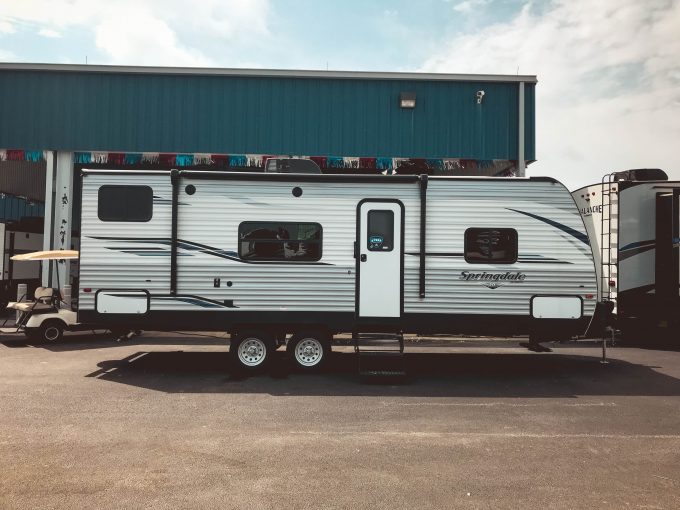
This is one of the best RV water heater options for travel trailers and motorhomes because most individuals who use them, like myself, are pretty conscious about how much water they use.
Unlike some of the other tankless water heaters I’ve seen, the AquaGo excels because it is designed as an on-demand water heater. As such it does a good job of heating water in small batches even as you conserve water by turning the faucet on and off repeatedly. Likewise, you will be pleased with warm water if your faucet is set to a trickle while washing dishes, your hands, or cleansing your face.
Because the Truma AquaGo is so easy to manipulate, winterize, and use in your rig the price of this setup is much higher than you’ll see on many other tankless water heaters.
You’re looking at over a thousand dollars for a basic setup, which is the main reason why I decided to not pull the trigger on the AquaGo. There are just so many other great options out there for a lot less money.
GIRARD TANKLESS WATER HEATER
The Girard Tankless Water Heater is another great option at a little over $500 for a setup. I’ve watched several YouTube videos about installing this particular unit and it seems relatively straightforward. In case you didn’t know, this is a huge plus when you’re diving into a DIY RV or travel trailer project.
Trust me, I should know.
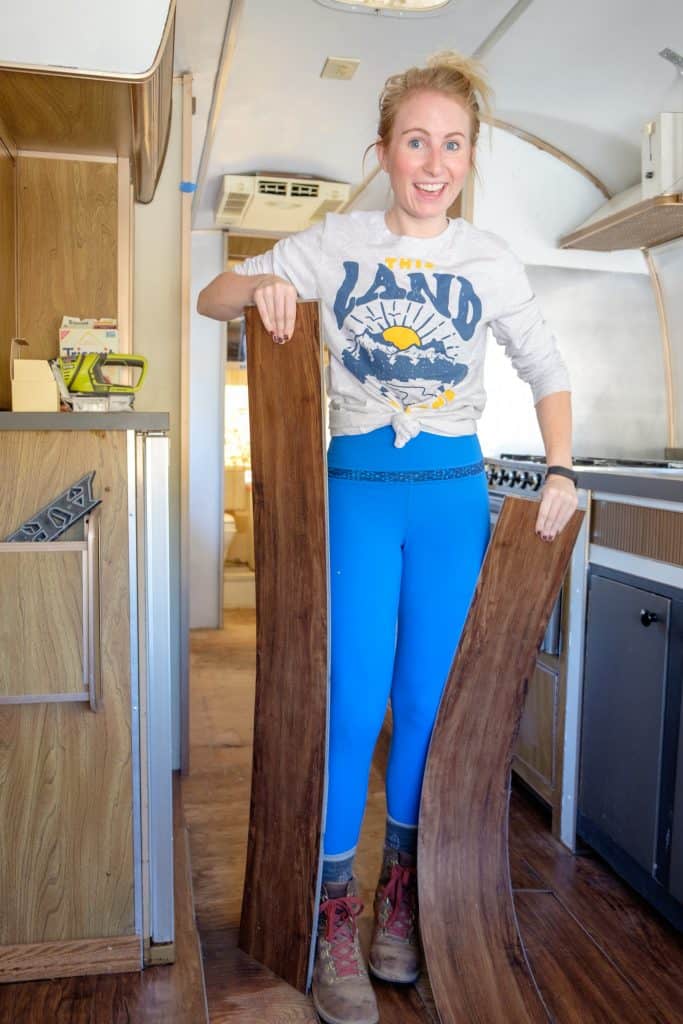
Here’s a little bit about the Girard Tankless Water Heater to give you a closer look:
- 12V DC power at less than 3 amps
- Weighs roughly 24 lbs
- Fuel type: Propane only
- Water Operating Pressure: 125 PSI max
- Designed for all-season use
The Girard system is one that I have seen time and again in RV forums and Facebook groups. It seems to fit in just about any water heater space in any kind of rig. Some people have mentioned that certain flow rates have prevented the water heater from heating up small amounts of water, so if you’re interested in a Girard setup I suggest talking to a dealership about it before purchasing one for your rig. You’ll want to make sure you can adapt your current setup somehow to meet the minimum requirements.
Side Note: This particular kit comes with the water heater, but not the door setup, so be sure you add the right door to your cart before purchasing one.
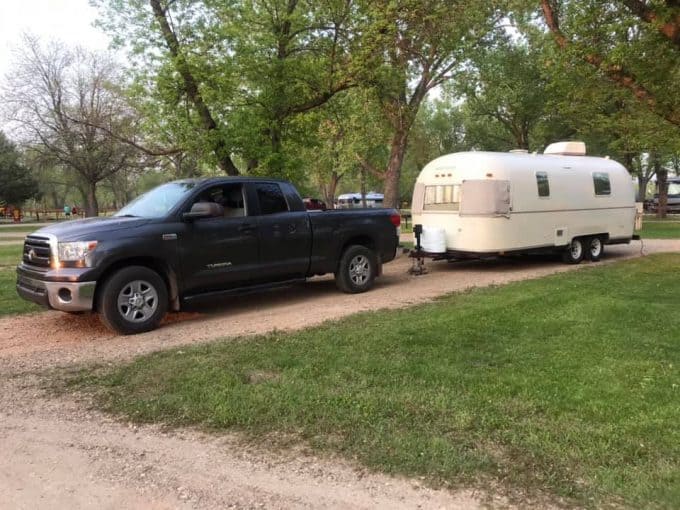
Because I’m selling my travel trailer, I decided not to go with the Girard system either. Mostly because of cost, but also because I didn’t want to have to spend any more of my budget revamping my plumbing fixtures prior to the sale. I honestly think this is the best system to purchase if you intend to keep your rig for a long time, but for me, it doesn’t make sense right now to spend that much until I get another recreational vehicle!
Mid- to Low-End Options
THERMOMATE TANKLESS WATER HEATER
Here are a few extra details about the Thermomate Tankless Water Heater:
- 12V DC power at less than 3 amps
- Weighs roughly 10 lbs
- Fuel type: Propane
- Water Operating Pressure: 2.5 PSI minimum up to 110 PSI maximum
- Can be used indoors and outdoors with anti-freezing properties
This particular setup is often used outdoors, but several RVers have seen success by mounting the heater underneath a window and cracking it prior to hopping in the shower or washing dishes.
Even though this setup seems to have the lowest PSI minimum, which makes it ideal for RVs and trailers, I’m not entirely convinced that this water heater is worth the money higher price.
If you see a promo or discount on this water heater, you may want to scoop it up right away. Either way, I do recommend that you do your due diligence and see if it might be a good fit for your situation.
CAMPLUX OUTDOOR PORTABLE TANKLESS WATER HEATER
For about $150, you can have this portable tankless water heater do the job if you only use water sparingly. This particular setup needs ventilation, like most other tankless water heaters, but this one in particular will also require an easily accessible location. It needs to be somewhere handy where you can adjust the temperatures and allow it enough oxygen to prevent it from turning on and off while you’re using hot water.
Here are a few details about the Camplux to help you decide for yourself:
- 12V DC power at less than 3 amps
- Weighs roughly 14 lbs
- Fuel type: Propane
- Water Operating Pressure: 3 PSI minimum up to 110 PSI maximum
- Can be used indoors and outdoors with anti-freezing protection
The Camplux 5L has better consumer reviews than its 10L counterpart, but I preferred this one myself because it requires very little PSI to get going and still gives you up to a 114 degree Fahrenheit change in water temperature to keep your water hot wherever you are and whenever you need it.
Which RV Water Heater Did I Choose
After spending many hours down the tankless water heater rabbit hole, I finally decided on the Camplux 5L.
Not only is it relatively inexpensive, it also has great reviews and meets our particular needs (and the needs of our travel trailer’s future owners!) based on the number of areas that need hot water and how large our water tank reserve is.
The Camplux 5L is also propane-based for boondocking purposes, which made the most sense for us as you can use it anywhere without being hooked up to electricity.
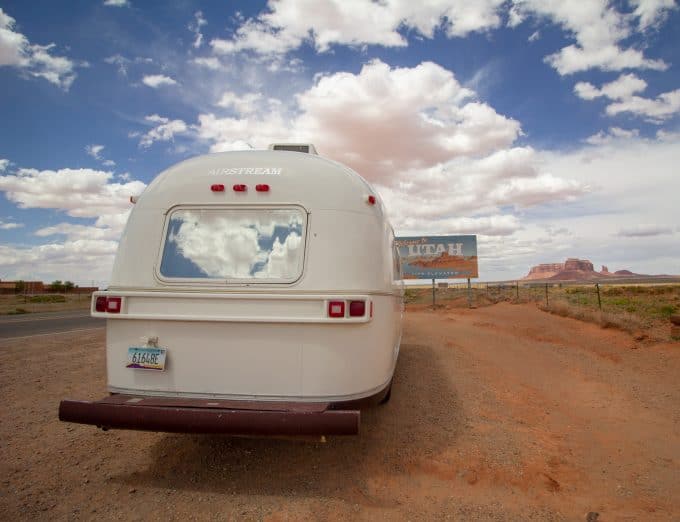
We’ve put our order in for the Camplux 5L and expect to have everything set up prior to selling our rig, Lorelai!
PIN THIS
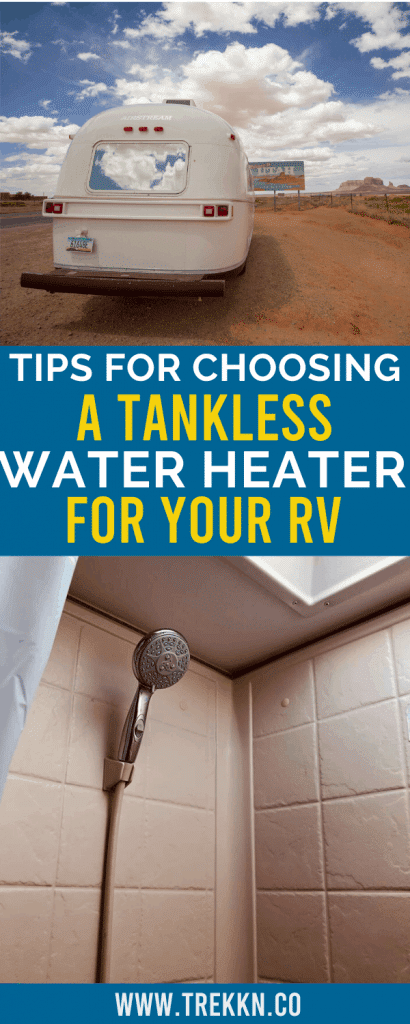
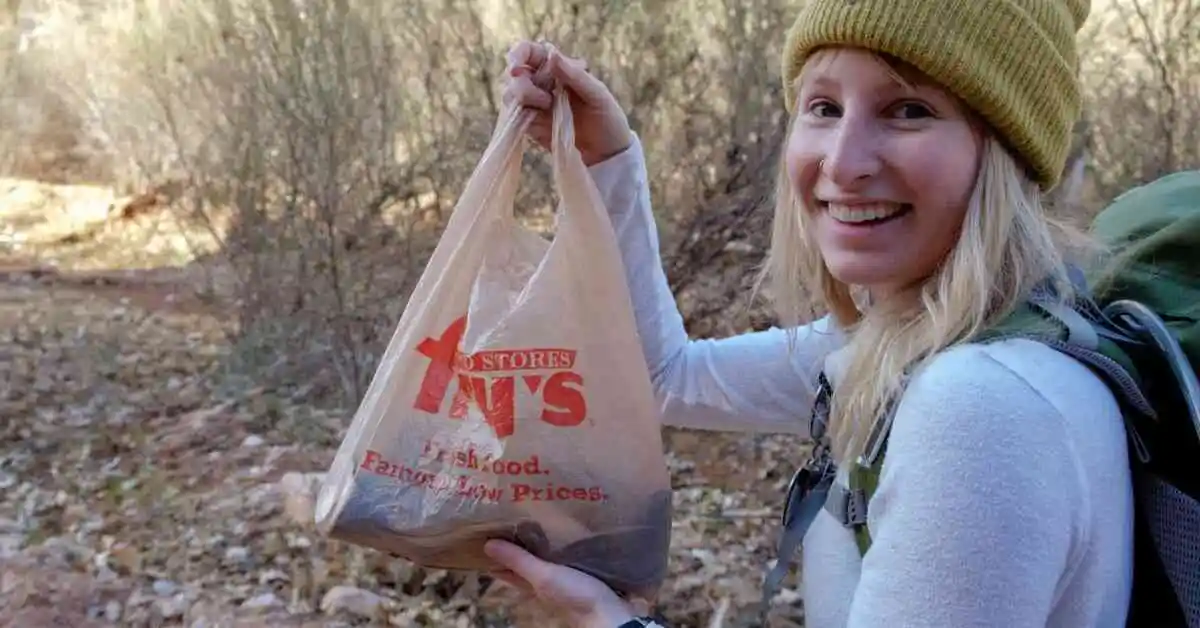
Erin is rooted in South Dakota, but wanders every chance she gets to see the beauty that nature holds. From hiking to climbing, there’s not an adventure she’ll turn down. After renovating her 1976 Airstream Argosy, Erin knows the ins and outs of living life on the road and trailer maintenance. Whether she’s on the road with her dog and partner or at home curled up with a good book, Erin is always planning her next adventure because life is meant to be lived outdoors.


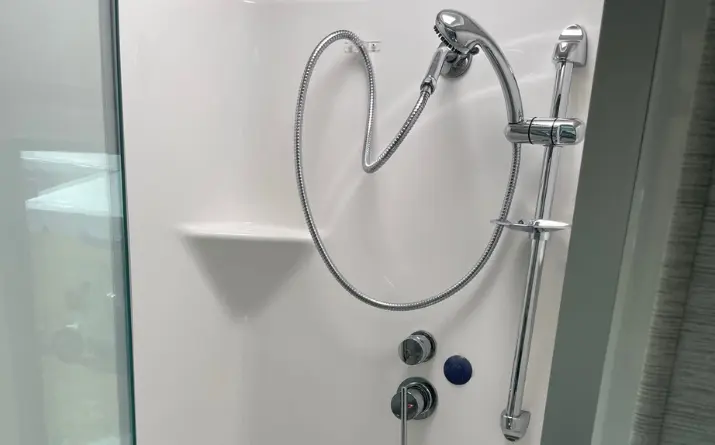


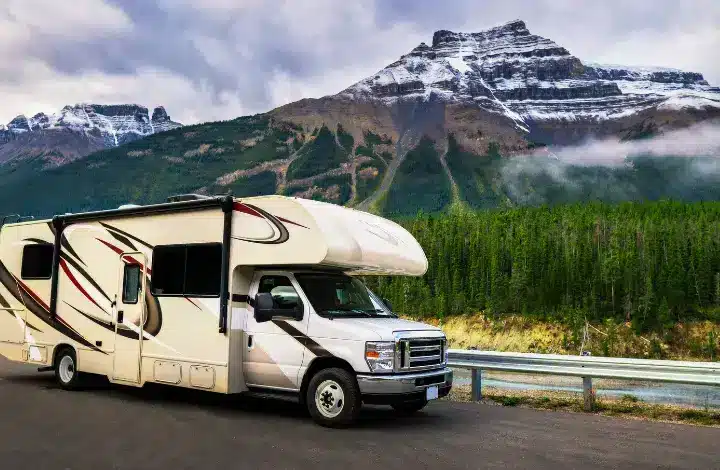
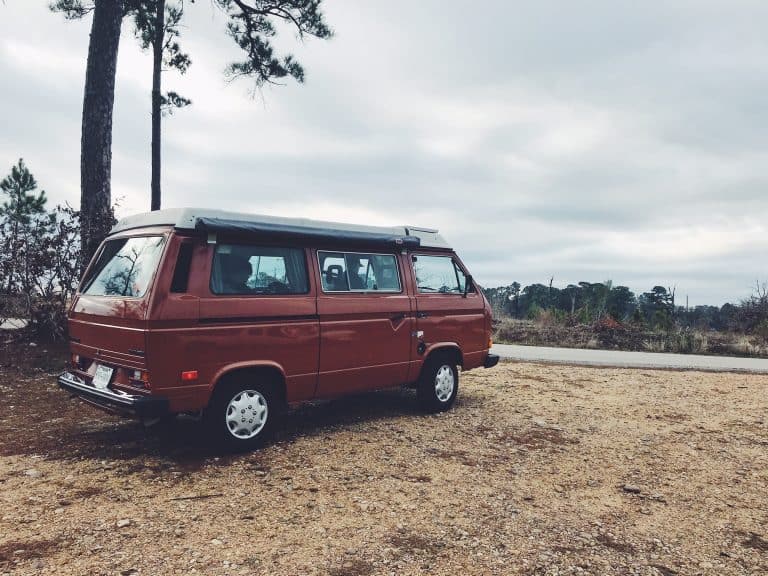
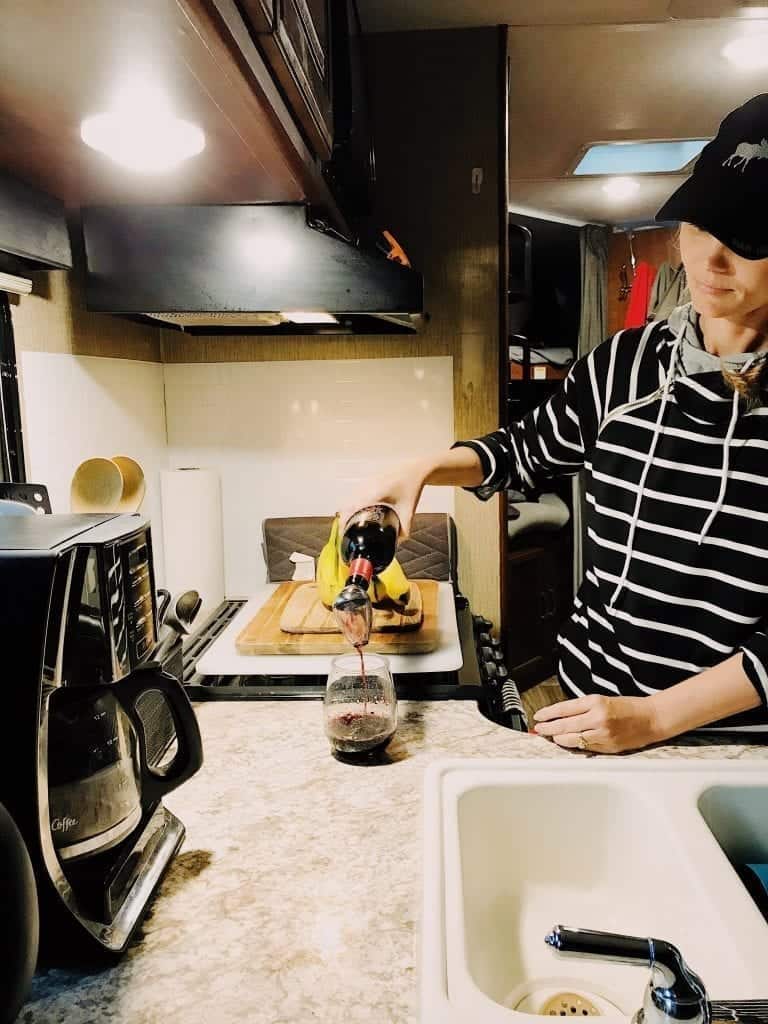
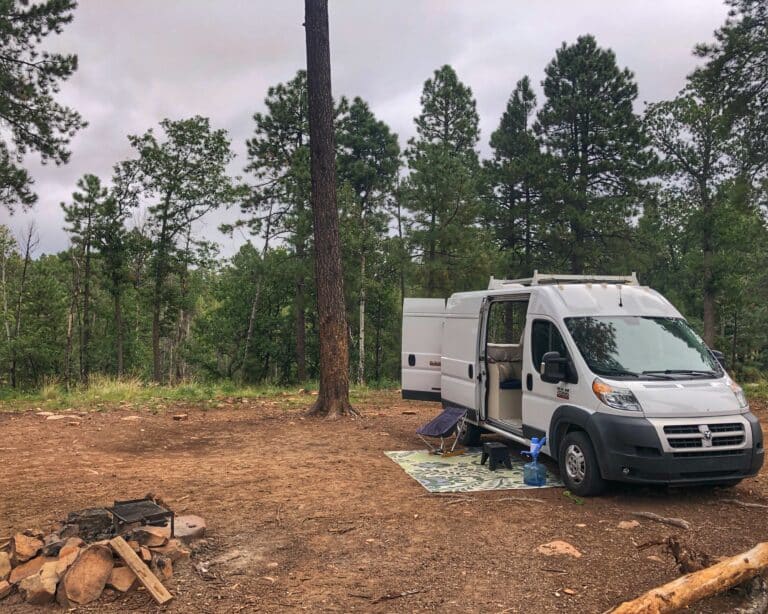
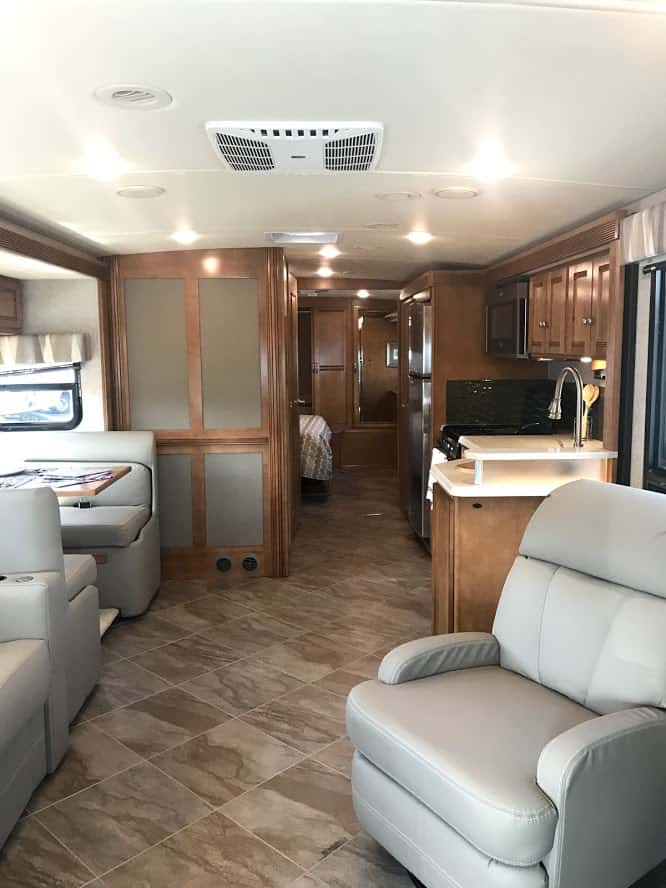
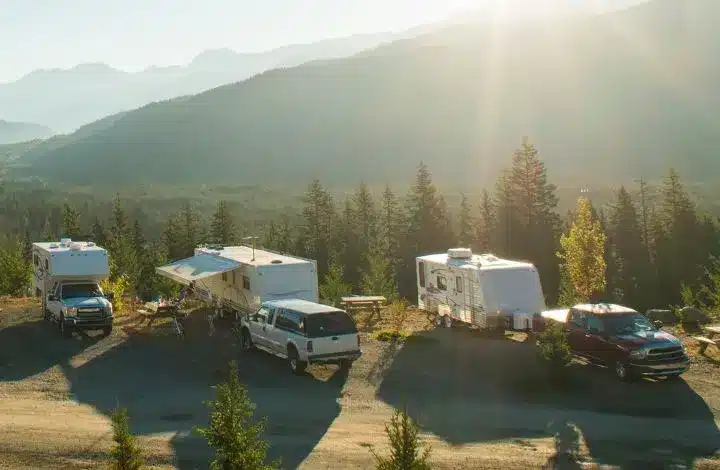
You forgot probably the best rv tankless water heater, the Furrion. Available on Amazon under $600. Fits most 6 gallon suburban /Atwood replacement openings. Actually fits nearly perfect, same opening once the old water heater is removed. Check it out.